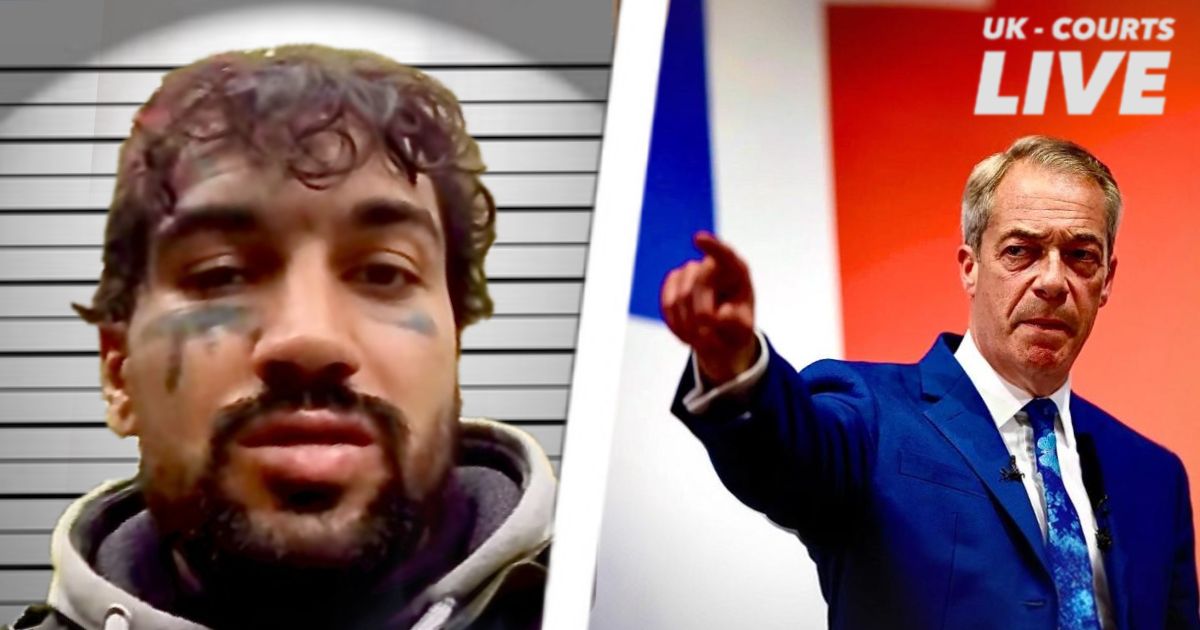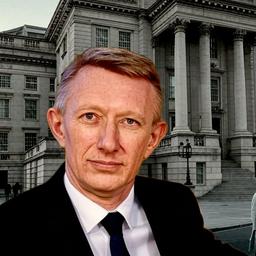Farage threat trial: Jury out as accused refuses to testify
Jurors retire in the Nigel oFarage death threat trial after Afghan migrant Fayaz Khan refuses to take the stand over his alleged TikTok threat to kill the Reform leader.
An Afghan migrant accused of threatening to kill Nigel Farage in a TikTok video has declined to give evidence in his trial at Southwark Crown Court, leaving jurors to determine whether his recorded words and gestures amounted to a genuine threat.
Fayaz Khan, 26, is alleged to have posted a video between 12 and 15 October last year in which he appeared to make a gun gesture, said “pop, pop, pop,” and referenced the Reform UK leader by name.
The court heard that Khan’s post was made shortly after Mr Farage released a YouTube video titled “The Journey of an Illegal Migrant,” in which he drew attention to Khan’s own TikTok activity documenting his travels to Britain.
In that broadcast, Mr Farage questioned whether Khan — described as a “young male of fighting age” — represented the type of migrant the UK wanted to admit. The politician also drew attention to Khan’s AK-47 tattoo, visible on his face, describing it as an aggressive symbol.
Prosecutor Peter Ratliff told jurors the alleged threat was “not some off-the-cuff comment,” but rather a “sinister and menacing” video directed squarely at Mr Farage. “Mr Khan has refused to give evidence in this case,” he said.
“The prosecution suggest this is because there is no sensible defence he could give to that video.”
He described the defendant as “a dangerous man with an interest in firearms,” adding that:
“if you’ve got an AK-47 tattooed on your arm and your face, it’s because you love AK-47s and want the world to know it.”
In the footage played to the jury, Khan addressed Mr Farage directly, saying:
“Englishman Nigel, don’t talk s*** about me. You not know me. I come to England because I want to marry with your sister. Don’t talk about me more. Delete the video. I’m coming to England. I’m going to pop, pop, pop.”
The prosecutor said that as Khan spoke those words, he made distinct gun gestures with his hand, headbutted the camera and pointed to his tattoo — actions said to demonstrate that he “wasn’t joking.”
A subsequent post from Khan’s TikTok account showed an image of a GB News headline about the alleged threat, overlaid with the caption: “I mean what I say.” The jury was also shown other clips in which Khan appeared to make similar “pop, pop, pop” sounds and gestures, consistent with the tone of the disputed video.
Mr Farage, giving evidence earlier in the trial, described the clip as “pretty chilling.” He told the court: “Given his proximity to guns and love of guns, I was genuinely worried.
What he says is that he’s coming to England and he’s going to shoot me.” The Reform UK leader said he had become aware of Khan after seeing his prolific TikTok content about crossing from Europe, and decided to use it to illustrate his concerns about illegal migration.
Defence counsel Charles Royle told jurors that Khan’s actions were “remonstrating in his own idiosyncratic, moronic, comedic, eye-catching, attention-seeking way” rather than an actual threat to kill.
He reminded the jury that “the trial is not about your views on illegal immigration, nor about your views on face tattoos, Brexit or Reform.” On Khan’s decision not to take the stand, Mr Royle said: “You shouldn’t hold any silence against him.”
Police evidence showed that Khan, an Afghan national with no fixed address, live-streamed his journey across the English Channel from France and was arrested on 31 October 2024 after arriving in the UK on a small boat. In a police interview, he claimed:
“It was just a video, it was never an intention to threaten him. It was never my intention to kill him or anything — this is my character, this is how I act in my videos. In every video I make those sounds, I say ‘pop, pop, pop’.”
Mrs Justice Steyn, presiding, reminded jurors that Mr Farage was “a well-known politician” but that their decision must rest entirely on the evidence presented in court.
She instructed them not to conduct any independent research or consult artificial intelligence tools, warning that doing so would be a criminal offence.
At 12:54pm on Wednesday, the jury was formally sent out to consider its verdicts. Khan denies one charge of making a threat to kill.





